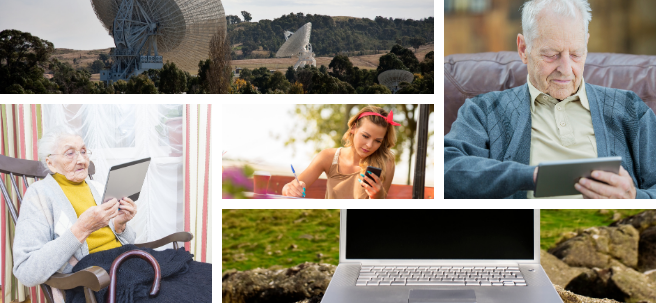
23 de November de 2020
Dinamización rural
Innovación
Dinamización rural
Innovación
November 23, 2020. In June 2019, the H2020 innovation project DESIRA (Digitization: Economic and Social Impacts on Rural Areas) was launched, comprised of 25 European entities, including the University of Córdoba.
- Rural digitalization presents itself as a great opportunity for rural areas, but it also entails risks.
 |
DESIRA was created with the aim of conducting a comprehensive assessment of both the opportunities and threats posed by new technologies in rural areas. It also aims to improve the responsiveness of society and public administrations to the challenges posed by digital innovations for rural areas and agriculture.
Project balance
Spain is participating in this study under the supervision of the University of Córdoba , with a group led by researcher Mº del Mar Delgado, who, with just over two years to go until the end of the project and a year and a half under her belt, is daring to put forward some conclusions for the National Rural Network.
Ministry of Rural Development del Mar Delgado states that the project is still in the analysis phase, after compiling some 800 rural digitalization initiatives worldwide.
These projects are classified into three major study groups: agriculture/rural development/forestry sector.
In all of them, the object of the study is the same: what technologies are changing the rules of the game?
Mar ventures that, after these months of project development, analyses indicate that digital transformation is not neutral , and that its implementation entails winners and losers. To put it another way, the digitalization of rural areas is an opportunity, but it carries significant risks . What are these?
- That neo-rural migration to the countryside displaces the settled population.
- That various services, such as banking, are closing in villages because all operations are concentrated digitally, and older people cannot or do not know how to access them.
- Let technocracy replace traditional knowledge and wisdom.
Therefore, one premise is clear in the DESIRA project: technology is the means , never the end. Rural development must be supported by technology, but not entirely structured around it. Transversality is presented as the only possible scenario to minimize risks.
Project goals
In the remaining time of the investigation, in addition to the development of the scenarios seen above, DESIRA has pending:
- An analysis of future rural technological scenarios .
- An analysis of the policies affecting rural digitalization at the national and European levels, with a particular focus on the new post-2020 CAP . This analysis will produce a roadmap that will be presented to the European Commission to serve as a basis for designing the next generation of rural policies .
Regarding the current digitalization of rural areas, Mar believes that the pandemic is significantly accelerating these processes, but "rural technological development in the coming months will also depend on infrastructure and people's digital capabilities. We must advance broadband and the digitalization of facilities, as well as in the training of people."
Living Labs
The DESIRA project has a network of 20 living labs in rural areas of Europe. Living labs are understood as spaces for experimentation and innovation, involving companies (both public and private) and individuals directly affected by each of the technologies or realities addressed by the project.
Specifically, the University of Córdoba is responsible for the living lab , which analyzes how to apply digitalization to forest fires , for example, to restore burned landscapes.









